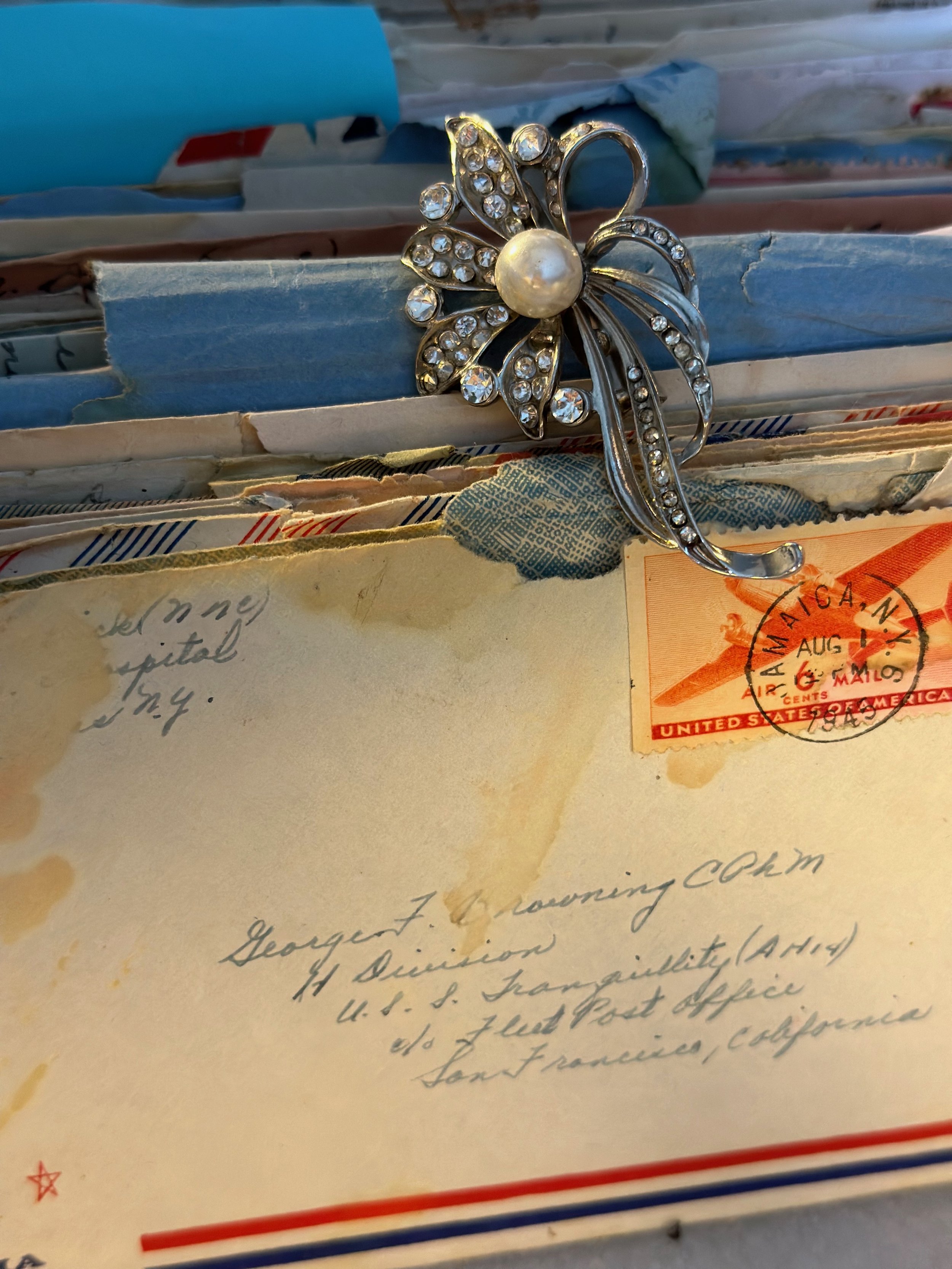
About this Project
I buy old diaries, written by women from across the United States. Then, I “find” the Diary Writer in the historical record. I read, transcribe, do research on, reflect, and write about what I find. I create family trees, read birth, marriage, and death records, and link high school yearbook pictures, obituaries, and news articles to the DWs. I even learn about the towns and times that they lived in to reconstruct their pasts from before the diary and their futures after.
Why diaries? The lives of women and girls are often overlooked and underrepresented in historical research, unless that woman did something that we as a culture assign value to, like aiding a war effort, committing a crime, or marrying an “important” man. Diaries not only allow me to find women to learn about through history, but they also allow her to have a voice in the telling of her story. This way, I can co-create history along with my Diary Writers (DWs) and allow them to comment on their own lives and times, based on what they think is important.
Then, once the diary is read and the documents gathered, it is inevitable that I start to speculate about the lives in the diaries beyond what I have evidence for, making assumptions and creating explanations for the things that I find.
Further, I am reading this information through the lens of my own experiences, priorities, and personality, given who I am and what I value. This, though, is inevitably the case. No matter who we are or the research project we are engaged in, it is inevitable that our own positionality influences the research. The very act of deciding what to research, how to research it, and the countless decisions that a researcher makes along the way are influenced by what we think is important or unimportant. This, then, is what we write about and present to others as the truth.
Many researchers might recognize this inevitability, but still aspire to objectivity. Objectivity might not be possible (we are all human, are we not?), but it is aspireable. I, however, wish to convince you that objectivity is not our goal here.
Yes, many of the plot points that I will present to you are facts, and those facts strung together constitute the life of a real woman, and are the final result of her choices, given her circumstances, opportunities, constraints, and what she values. Obviously, I can’t definitively know why these women did what they did, all these years later, from their handwritten account of just year or two of their lives, plus a handful of historical records. Still, is it inconceivable that I, as a fellow human and fellow woman, might not be able to understand these women a bit, even given our differences in spacetime? Our circumstances, opportunities, and constraints are different, but isn’t that true of each of us, whether we are contemporaries or not? I have circumstances, opportunities, and constraints that if any of my DWs read, researched, and reflected on them, I think they might be able to understand too. This is not to minimize our differences or to presume that we can ever really understand another’s positionality; it’s more about the recognition of our shared humanity, after a real effort at knowledge and empathy.
So, shall we not embrace our shared humanity and the inevitable influence that I, as the researcher and writer, will have on our understandings of these women? For I do try to understand them and am often forced to understand myself more in the process. When I construct their narratives in my mind, it is through my lens, which can then be turned back upon me. My wonderings about their lives are just as much about me as they are about them and this realization forces me to think about my own existence, experiences, and socio-historical context. In this way, I’m not just learning about their lives and times, I’m learning about myself and my own as well.
Ultimately, I “find” each of the women from their diaries without judgement or preconceived ideas. That is precisely what I like about this- watching real stories of real women unfold before me, living with that woman in as much of her life as I can reconstruct for a little while, and then telling her story. When I started this, I didn’t think that I would end up telling the stories to anyone else; I was telling them to myself as a way to learn about and honor the women I was getting to know and as a way of thinking about and reflecting on my own history and life too. Now, after beginning this project, I feel a responsibility to tell the world about these women as well.
I don’t keep a diary, but I have found self-reflection and self-understanding while reading theirs. Perhaps it is the telling of their stories and the infusion of myself in the telling that is ultimately my diary. I’m grateful to them for that and hope that I might do their stories justice.